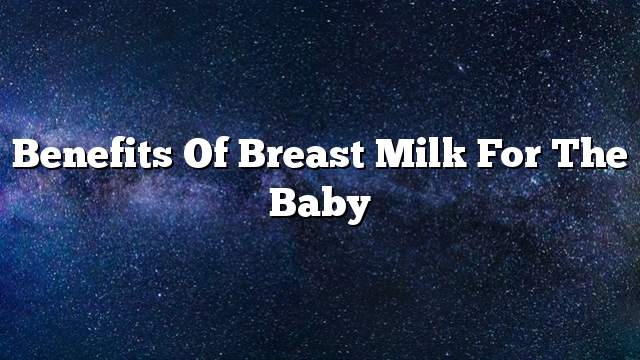Mother’s milk
The mother’s milk is the best food for the child in the first two years of age, because it helps the development of the digestive system in the child, and strengthens the immune system, and the return of breastfeeding benefit the mother also because the uterus back to normal, and the mother can also during the period of breastfeeding weight loss I gained in pregnancy.
The importance of breastfeeding
- Gastrointestinal function improves because of the presence of many compounds such as: hormones, mainly cortisone and insulin, amino acids responsible for the growth and development of the digestive system, anti-inflammatory substances, and compounds that support the function of the immune system such as antibodies, enzymes that exist only in breast milk , And breastfeeding contributes to the growth of good bacteria in the intestines.
- The mother’s milk strengthens the immune system in children and protects against infection due to the presence of proteins, fats, carbohydrates and white blood cells that protect the body from various diseases.
- Breastfeeding helps to develop mental abilities in children, and studies have shown that breastfed children have high intelligence tests, and that their senses are better developed than children who have not been breastfed.
- Strengthens the relationship between the mother and her child, and reduces the baby’s crying and tension because of the anti-pain effect found in breast milk.
- Contribute to the child’s mental and social development, and strengthen the bonds between members of the same family.
- Helps the child develop and grow better, reduce the risk of infant disease, and thus reduce the mortality rate among them.
Benefits of breast feeding
- The pituitary gland secretes oxytocin during breastfeeding, which increases uterine contractions back to normal, and lactating women are less likely to have postpartum complications than non-nursing women.
- The proportion of nursing mothers who suffer from stress and postpartum depression is lower than those who do not breastfeed.
- Helps to reduce weight by burning calories, and increase the needs of nursing women to energy to meet the needs of different body during the infancy.
- It can be considered contraceptive because milk hormones prevent ovulation in women.
- Reduce the risk of ovarian cancer and breast cancer.
- Reduce the risk of chronic diseases such as weight gain, heart disease, atherosclerosis, and increase triglycerides.
- The use of artificial feeding is an economic burden for many families.
